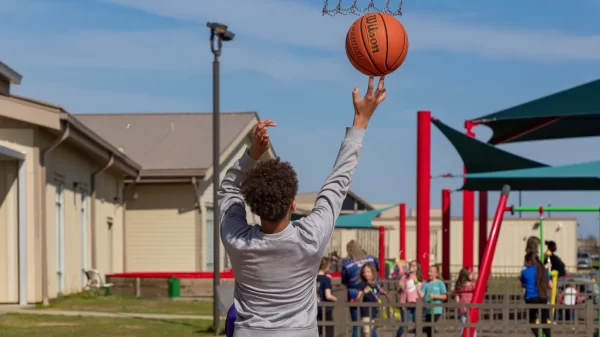By Bill Britt
Alabama Political Reporter
MONTGOMERY—Lobbyists for the Poarch Creek Indians (PCI) have reportedly been telling members in the State’s House of Representatives that the Governor has the authority to sign an exclusive gaming compact with the Tribe, without authorization from the Legislature.
However, the State’s 1901 Constitution, as well as case law, would seem to make it abundantly clear that the Governor does not have unilateral authority to sign a compact without the approval of the House and Senate. Not only would it require legislative approval it would require a Constitutional amendment voted on by the people.
SECTION 22 of the Constitution states:
“Ex post facto laws; impairment of obligations of contracts; irrevocable or exclusive grants of special privileges or immunities.
That no ex post facto law, nor any law, impairing the obligations of contracts, or making any irrevocable or exclusive grants of special privileges or immunities, shall be passed by the legislature; and every grant or franchise, privilege, or immunity shall forever remain subject to revocation, alteration, or amendment.”
Legal authorities speaking on background said, “In light of Section 22, a constitutional amendment would be necessary to give the legislature authority to approve an EXCLUSIVE compact. If the compact is to be exclusive (i.e. granting a monopoly to the PCI), then the legislature is prohibited from approving it unless a constitutional amendment has been ratified by the people giving the legislature that authority. If the compact is not exclusive, then no violation of Section 22.”
While the Governor has the power to negotiate a compact, the legislature must approve it, and if it is exclusive, the voters would then have to approve a Constitutional amendment.
There is also case law that denies the Governor the right to unilaterally enter into an exclusive compact without legislative approval.
Class III table gaming is currently not legal in Alabama. This was the same situation in Florida in 2007, when Governor Charles Crist unilaterally signed a exclusive compact with Seminole Indian Tribe.
In 2008, the Florida House of Representatives and its Speaker, Marco Rubio, filed in petition for a writ of quo warranto in the Florida Supreme Court, disputing the Governor’s authority to bind the State to the compact that he signed with the Seminole Indian Tribe of Florida. The Court held “…the Governor does not have the constitutional authority to bind the State to a gaming compact that clearly departs from the State’s public policy by legalizing types of gaming that are illegal everywhere else in the state.”
The Florida Supreme Court ruling in Florida House of Representatives v. Crist, 990 So.2d 1035 (Fla. 2008), in denying the governor’s authority to enter into the exclusive compact states, “After almost sixteen years of sporadic negotiations with four governors, in November 2007 the Seminole Indian Tribe of Florida signed a gambling “compact” (a contract between two sovereigns) with Florida Governor Charles Crist. The compact significantly expands casino gambling, also known as “gaming,” on tribal lands. For example, it permits card games such as blackjack and baccarat that are otherwise prohibited by law. In return, the compact promises substantial remuneration to the State.”
This is same type of compact being promoted by Speaker Mike Hubbard (R-Auburn), and reportedly House members are being told that it is legal for the Governor to sign a exclusive compact without their approval. However, case law and the State’s constitution would render such an arrangement illegal.
The Indian Gaming Regulatory Act (IGRA) clearly prohibits the conduct of Class III (Table) gaming activities on Indian lands in the absence of a Tribal-State compact. The only exception to the compact requirement Congress envisioned, was the promulgation of a gaming compact through administrative procedures after a bad-faith determination and in concert with a proposal selected by a court-appointed mediator.
In Pueblo of Santa Ana v. Kelly, 104 F.3d 1546 (10th Cir. 1997), the court held that the compact must be valid under state law to be valid and in effect.
According the United States Court of Appeals, Tenth Circuit: “This case presents a central and dispositive question: whether, under the Indian Gaming Regulatory Act, the Secretary of the Interior can, by his approval, give life to a compact which was void from its inception because the state governor who signed the compact lacked the authority under state law to sign on behalf of the state? We hold that the Secretary cannot, under the Act, vivify that which was never alive, and we therefore affirm the decision of the district court.”
“The district court granted summary judgment to the United States and the State of New Mexico, concluding that the compacts were not valid under IGRA because the Governor lacked the authority under New Mexico law to execute the compacts on behalf of the state. It therefore declared that the Tribes’ class III gaming activities violated federal law.”
Here, case law is clear: The compact which was found to be void from its inception because the state governor who signed the compact lacked the authority under state law to sign on behalf of the state.
The Tenth Circuit, after surveying several cases in various states, concluded that the “entered into” language in 25 U.S.C. 2710(d)(1)(C) “imposes an independent requirement that the compact must be validly entered into by a state before it can go into effect via Secretarial approval.”
An attorney who has worked around indian gaming speaking on background, said that this type of problem has also occurred in North Carolina and other states, where the compact was first signed by the Governor but later had to be given final authority by the legislature. He also believes that if the governor did sign a compact without prior approval of the legislative body that a lawsuit would soon follow. “If I were the Tribe and I wanted to be safe, especially if they wanted me to pay $250 million up front, I would get legislation, probably a constitutional amendment.”
Senate President Pro Tem Del Marsh, (R-Anniston) has said that an exclusive compact would require constitutional amendment, which would in-effect amend Section 22 of the State Constitution
PCI is currently under threat of a lawsuit from the State’s Attorney General which is now pending in the US Eleventh Circuit. An attorney who has studied this an other indian gaming suits, says that a compact would make the Attorney General’s case moot.






















































